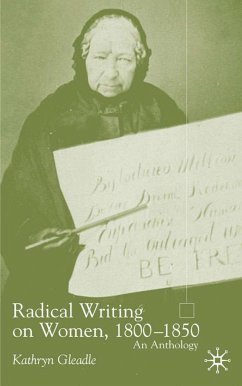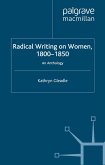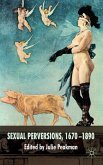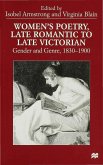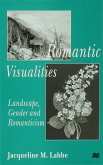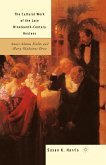Nudism, playgroups, pre-marital agreements, male breast-feeding - these are just some of the startling proposals for women's emancipation discovered in this unique anthology. A fascinating collection, it brings together the many diverse political extents of early nineteenth-century British feminism, as well as representing the works of literary figures such as Shelley, Tennyson and the Brontes. Complete with an extensive bibliography, biographical index and illuminating contextualization, it will provide an invaluable tool for scholars and students of feminism, women's history, and early nineteenth-century literature.
Hinweis: Dieser Artikel kann nur an eine deutsche Lieferadresse ausgeliefert werden.
Hinweis: Dieser Artikel kann nur an eine deutsche Lieferadresse ausgeliefert werden.
'This is a rich and wide-ranging anthology which explores the continuing debate about the situation of women in Britain after 1800...a significant contribution to our knowledge of the variety and interest of feminist discussion in the period. This collection should go far to inform, stimulate, entertain and prompt further research.' - Dr Jane Rendell, Senior Lecturer in History, University of York

